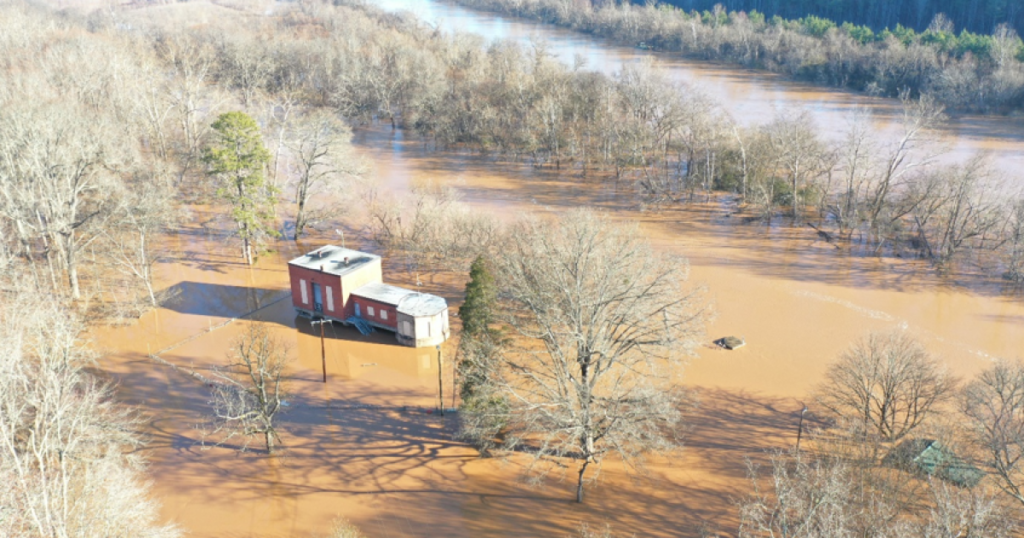This article originally appeared in WFAE’s Climate News newsletter. Sign up here for weekly climate stories straight to your inbox.
In Salisbury, North Carolina, the Hannah Ferry pump station stands as a stark reminder of the region’s flood history. With dates etched into its concrete foundation marking significant flooding events, the station has yet to display the most recent floods, which surpassed the markers, according to Jason Wilson, director of Salisbury-Rowan Utilities. The city recognizes the pressing need to address these challenges, yet funding remains a critical hurdle.
Earlier this month, FEMA announced the cancellation of the Building Resilient Infrastructure and Communities (BRIC) grants, leaving many North Carolina municipalities, including Salisbury, in a precarious position. Salisbury had already invested $3 million in permits and planning to relocate the pump station on the Yadkin River, which serves 53,000 residents in Rowan County. Flooding forces the utility to cut power to the station, a consequence exacerbated by a dam built by Alcoa downstream, which has led to increased upstream flooding.
Wilson pointed out an aerial image of the pump station, stating, “In some cases, [we] have actually just floated over top of the fence. And this is an 8 or 10-foot-tall fence.”
While Salisbury has received a $22.5 million grant from FEMA to relocate the station, the city has so far relied on its own funds and a matching grant from Cube Hydro, which operates the dam. The future of these funds, however, remains uncertain without federal support. Salisbury is prepared to proceed using a mix of smaller grants or, if necessary, city finances.
FEMA Funding Uncertainty
FEMA’s decision has impacted over 40 similar projects in North Carolina, leaving them without the expected federal support. The town of Duck, the only locality to complete its project, is awaiting a $1.85 million reimbursement from FEMA after spending $4.1 million on elevating NC-12, restoring wetlands, and improving stormwater control.
In a statement, Duck’s Director of Community Development Jim Gould said, “Our last correspondence from the NCDEM on April 7th indicates that the reimbursement request is currently being ‘processed’ by NCDPS Finance Department.”
The lack of clarity around funding may cause delays and rising costs, as material and labor prices continue to climb. Some municipalities may turn to state grants, but they could face additional challenges as projects stall.
Michelle Lovejoy, senior manager of climate resilient coasts and watersheds for the Environmental Defense Fund, highlighted the importance of maintaining project momentum and preparing for future disasters. “As a project lags over time, you lose a lot of the momentum to get it done,” she said.
With hurricane season approaching, Lovejoy emphasized the potential contractor shortages local governments might face. She pointed to a study from the U.S. Chamber of Commerce, noting, “$1 spent on climate resilience and preparedness saves communities $13 in damages.” Lovejoy added, “The longer we wait to do proactive mitigation, the worse the impact is going to get each year as we get more rainfall.”





